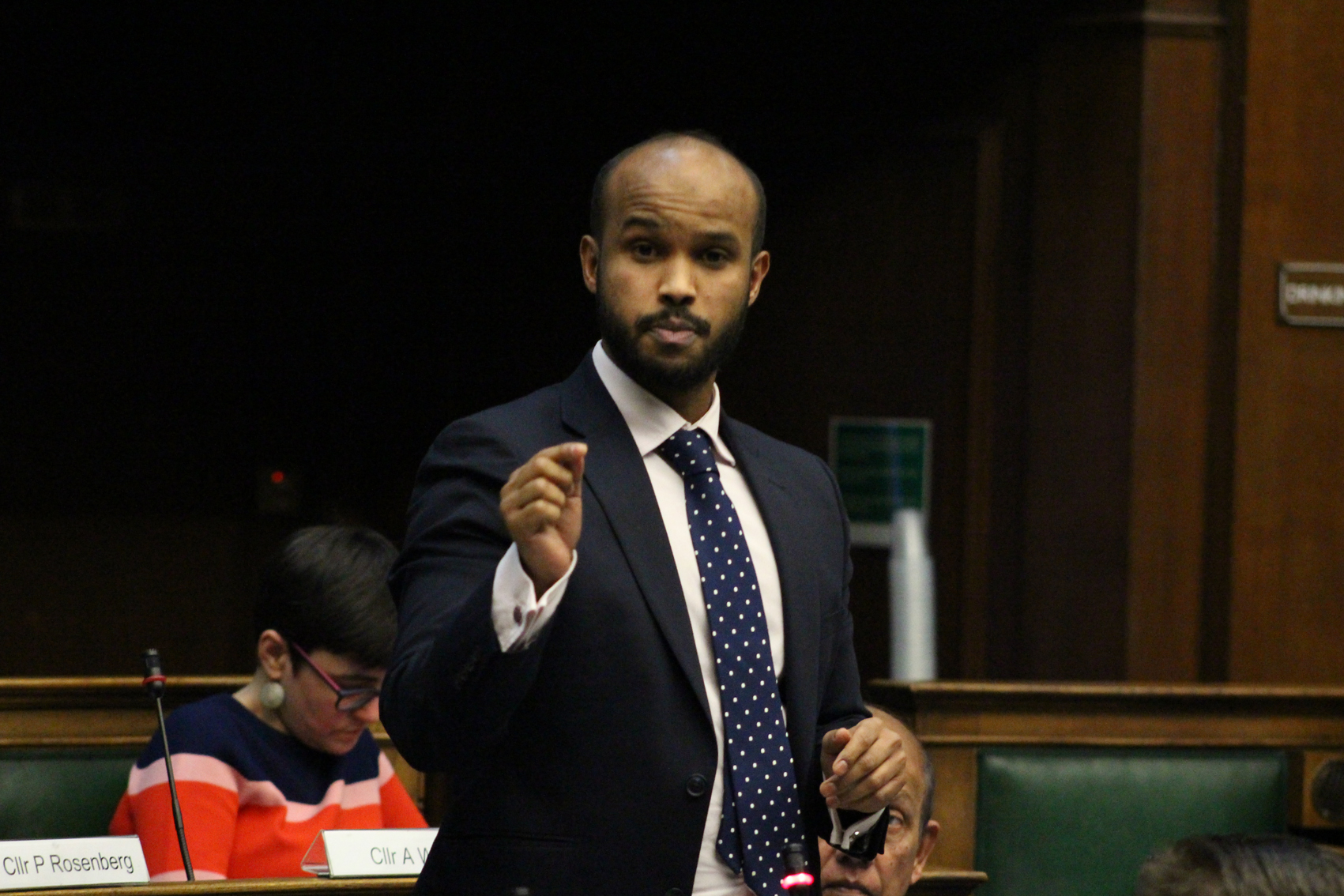‘Social inequality lies behind BAME coronavirus deaths'
Government urged to speed up review
Friday, 24th April 2020 — By Helen Chapman

Awale Olad
THE high number of coronavirus deaths among minority ethnic communities is linked to long-standing inequalities in society, it was claimed this week.
Data published by NHS England last week shows that 17 per cent of patients who died after testing positive for Covid-19 in hospitals were people from BAME (Black, Asian and Minority Ethnic) backgrounds.
These communities, however, make up 13 per cent of the wider UK population. London Mayor Sadiq Khan has now called for the government to publish coronavirus data showing a breakdown of the ethnicity of those who have died, and ministers have said they will launch a review into the disproportionate impact.
Labour councillor Awale Olad said: “It is a massive problem. There has been a fundamental failure across the government to tackle this problem. I think the government should have done a lot more and acted a lot quicker. We have been talking a lot about BAME communities being overrepresented in health statistics when it comes to having general difficulties in life. This should’ve been the first thing that was addressed, as well as older people being a high risk.”
A report from the National Audit and Research Centre found that over a third of the first 3,883 patients critically ill with Covid-19 were from BAME backgrounds. And the first 10 UK doctors who died from coronavirus were all from BAME backgrounds.
Cllr Olad said: “All you have to do is look at the faces of those on the frontline who have died to understand the problem. When you look at the low-skilled workers in the labour market, the majority are BAME and migrant workers and you can put the issue up there where they are less likely to complain about not having the right equipment and not having the right gear to protect themselves. They are at greater risk anyway and are in a terrible situation.”
Cabinet councillor Abdul Hai pointed towards families living in crowded housing being at a higher risk, adding: “ There is evidence which suggests inequality is a contributing factor – many BAME people are living in overcrowded housing which can lead to poor health. We need to understand the facts and figures and let people know we are supporting these communities.”